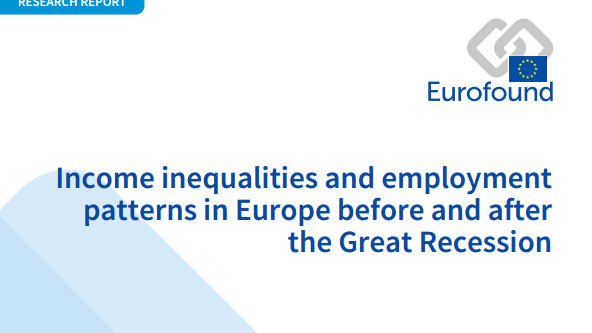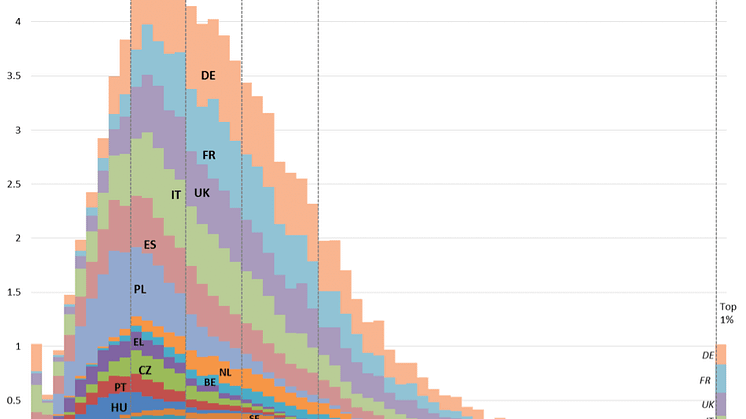
News -
Income inequalities and middle class squeeze
In the years up to 2008, income inequalities between EU Member States declined as incomes converged strongly, although inequalities within countries fell only very slightly. The 2008 recession broke this trend of convergence between Member States, having a much larger downwards impact on incomes in countries at the periphery of the EU, especially the Mediterranean countries. In two-thirds of Member States, inequalities in household disposable income within the country increased after the crisis, albeit moderately. Growing unemployment was the main driver behind increased household income inequalities. These are among the findings of Eurofound’s new report Income inequalities and employment patterns in Europe before and after the Great Recession. The study affirms that the crisis has reduced average household disposable real income levels across almost all European countries and that the middle income classes have been squeezed in the majority of countries.






